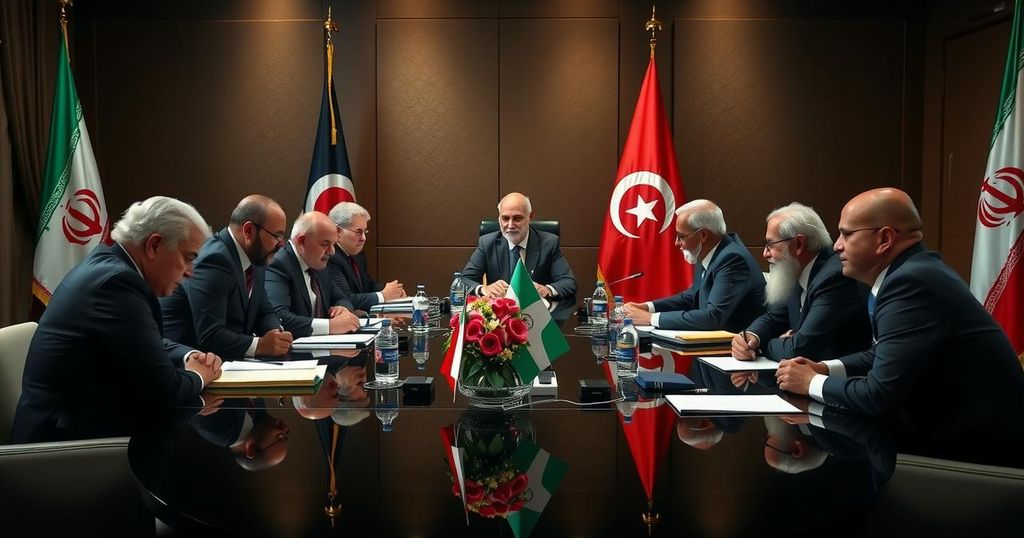An Iranian delegation, led by Ibrahim Azizi, is visiting Algeria and Tunisia to enhance diplomatic relations and cooperation. The visit marks an important thawing of historically tense ties, particularly between Iran and Algeria, and aligns with Tunisia’s shift to less Western-aligned foreign policy. Key discussions focus on economic collaboration and regional issues, including the Palestinian situation.
A delegation of Iranian officials has embarked on a week-long diplomatic visit to Algeria and Tunisia, with the aim of enhancing cooperation and establishing a more robust Iranian presence in North Africa. Led by Ibrahim Azizi, the head of the Iranian Parliament’s National Security and Foreign Policy Committee, the group is currently engaging with Algerian officials, including Foreign Minister Ahmed Attaf, and is expected to visit Tunisia shortly. This visit marks a noteworthy phase in the historically strained relations between Iran and Algeria, which have seen significant improvement over recent years, especially following high-profile political exchanges. The delegation’s discussions focused on strengthening bilateral relations, as well as addressing key regional issues such as the Palestinian plight and methods to boost economic collaboration in various sectors including agriculture and education. Tunisia’s evolving foreign policy, highlighted by the easing of visa requirements for Iranian tourists, reflects a significant shift in its diplomatic alignment, moving away from Western influence towards more engagement with Iran. This visit underlines the increasing mutual interests between Iran and North African states, suggesting a strategic pivot in regional alliances.
The diplomatic relationship between Iran and Algeria has been historically tumultuous, particularly during the 1990s when Algeria accused Iran of supporting Islamist militants amid its devastating civil war. This led to a complete severance of ties, which only resumed in the early 2000s. Although relations remained cautious, recent high-profile exchanges have indicated a warming of ties, as both nations attempt to bolster their diplomatic and economic cooperation. Moreover, Tunisia’s current foreign policy, marked by warming relations with Iran, signifies a broader realignment that is reshaping its international relationships and foreign policy priorities.
The visit of the Iranian delegation to Algeria and Tunisia highlights a significant development in the diplomatic landscape of North Africa. It underscores a marked shift towards greater collaboration between Iran and these nations, as both parties seek to address regional challenges and expand bilateral economic relations. The easing of travel restrictions and the engagement of high-ranking officials further indicate a strategic pivot in Tunisia’s foreign policy approach, potentially leading to closer ties with Iran in the coming years.
Original Source: www.thenationalnews.com






